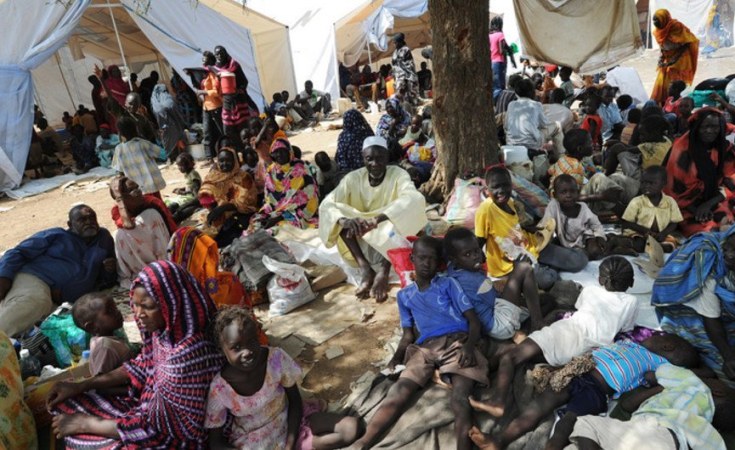The conflict in Sudan has uprooted more than two million children - an average of more than 700 newly displaced every hour, the UN Children's Fund (UNICEF) reported on Thursday.
Fighting between the Sudanese Army and military rival the Rapid Support Forces (RSF), which erupted in April, has displaced 1.7 million children within the country while more than 470,000 have fled across the border to safety.
Urgent response needed
Given these numbers, and that countless more children are trapped by the violence,
"the urgency of our collective response cannot be overstated," said Mandeep O'Brien, UNICEF Country Representative in Sudan.
"We are hearing unimaginable stories from children and families, some of whom lost everything and had to watch their loved ones die in front of their eyes. We said it before, and we are saying it again: we need peace now for children to survive," she added.
UNICEF continues to call on the warring parties to prioritize the safety and wellbeing of children, ensure their protection, and enable unimpeded humanitarian access to affected areas.
Fighting hinders aid delivery
The agency recently warned that currently, 14 million children in Sudan are in dire need of humanitarian support, noting that many of these boys and girls are facing multiple threats and terrifying experiences every day.
Apart from conflict hotspots like Darfur and the capital, Khartoum, the heavy fighting has now spread to other populated areas, including in South and West Kordofan states, which is hampering aid delivery and access to people in urgent need.
Humanitarians have estimated that 20.3 million people in Sudan will be food insecure between July and September, based on the latest Integrated Food Security Phase Classification (IPC) report for the country. As a result, the health and nutrition status of close to 10 million children is expected to worsen.
Threat of outbreaks
UNICEF added that with the beginning of the rainy season, many houses have been destroyed by floods, displacing growing numbers of families. Moreover, the rainy period raises the risk of disease outbreaks such as cholera, dengue, Rift Valley fever, and chikungunya.
Currently, nearly 9.5 million children in Sudan lack access to safe drinking water, and 3.4 million under-fives are at high risk of diarrhoeal diseases and cholera.
Meanwhile, violence continues to hamper the delivery of health and nutrition services, putting millions of young lives at risk.
Healthcare under attack
In Khartoum and the Darfur and Kordofan regions, fewer than one-third of health facilities are fully functional, UNICEF said. Insecurity and displacement are also preventing patients and health workers from reaching hospitals, with many facilities reportedly beingattacked and destroyed.
Health systems in Sudan's 11 other states are overwhelmed as the displaced masses move to these less-affected areas. All states in the country are reporting severe shortages of medicines and supplies, including life-saving items, according to UNICEF sources.
A 'lethal combination'
Disease outbreaks, including measles, are resurfacing, with reported associated deaths, in areas facing high internal displacement and stretched health systems, such as the Blue and White Nile states.
The "lethal combination" of measles and malnutrition is putting young lives at a very high risk unless urgent action is taken, UNICEF said.
The UN agency is urgently seeking $400 million over the next 100 days to scale up support in Sudan.
Staff have been providing education, protection, health, water, sanitation, and hygiene (WASH) services to over four million children, mothers, and families across the country since the war broke out.


